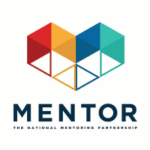Prevention & Intervention
- Alcohol and Drugs (24)
- Behavior Management (21)
- Bullying (70)
- Cyber Bullying (47)
- Foster Youth (44)
- Gangs and Violence (30)
- Homeless and Runaway Youth (17)
- Mentoring Programs for Youth (26)
- Safety (62)
- School Counseling (21)
Mental Health America is a national non-profit community organization that is dedicated to helping people live mentally healthier lives.
Mental health can’t wait. Taking action for your personal mental well-being—whether by setting boundaries, reaching out for support, or practicing self-care—can make a lasting difference. This Mental Health Month, prioritize yourself and explore the resources that can help you build resilience, manage challenges, and thrive.
Mainspring Consulting, in partnership with child and youth development experts, has created a practice framework intended to support work environments that employ older youth who have experienced foster care. This toolkit offers guidance on outreach and hiring, supervisory expectations, onboarding, and benefits. It ends with a call to action to create supportive work environments.
The State of California and CSBA (California School Boards Association) has created a dedicated website to immigration-related resources for school districts and personnel. Included in these resources are quick guides for school officials, student family checklists, and the Bureau of Children’s Justice Resource Page as well as other relative resources to supporting children and youth in the education system.
Bark offers free resources to support caregivers navigate the digital divide with their youth, including app reviews and tech guides.
Baker McKenzie in partnership with One North has created a multi-state resource guide to support unhoused youth. Included information guides youth in areas including knowing their rights particularly as it impacts their lives.
Together, The National Child Traumatic Stress Network (NCTSN) and The National Center for Posttraumatic Stress Disorder (PTSD) offer the Psychological First Aid (PFA) for Schools: Field Operations Guide as a resource for educators and educational professionals. This guide offers the PFA core actions which include contact and engagement; safety and comfort; stabilization; information gathering; practical assistance; connection with social supports; information on coping; and linkage with collaborative services.
MENTOR helps children by providing a public voice, developing and delivering resources to mentoring programs nationwide and by promoting quality for mentoring through standards, cutting-edge research and state of the art tools.
This resource provided by the ACLU gives guidance to knowing your rights when questioned by law enforcement agencies and authorities. A copy of “My Rights Card” is available in this resource for use if needed. This resource is prepared in English.
This resource provided by the ACLU gives guidance to knowing your rights when questioned by law enforcement agencies and authorities. A copy of “My Rights Card” is available in this resource for use if needed. This resource is prepared in Spanish.
The GIANT Room in collaboration with Lysol® has created a free digital-resource series of Minilab Science Kits accessible to educators, co-designed by teachers, families, and students. The HERE for Healthy Schools program is intended to promote healthy learning about microbes and germs to reduce school absenteeism.
Activities are designed for children in grades 1 and 2.
The Annie E. Casey Foundation offers its latest installment to provide information on kinship diversion policies through this analysis report of state-by-state surveys of kinship care policies. Findings are based on 33 state respondents who have policies allowing kinship diversion. The Annie E. Casey Foundation defines kinship diversion as placement of a child with relatives or close family friends as an alternative to a child welfare agency taking custody and placing the child in formal foster care.
Together for Girls is an international organization spotlighting the importance for youth advocacy and violence prevention against children. Their 2022-2023 impact report spotlights the preventability of violence and importance of change through partnership models.







